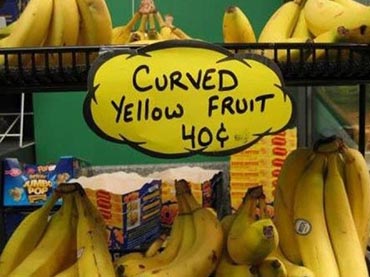When Writing Goes Wrong
June 15, 2020 Laura Moats

Why word choice and accurate punctuation matter
According to Mel Schwartz L.C.S.W., Our words matter. The words we choose convey our thoughts and feelings…When we misuse our words or truncate our sentences to save time, we dishonor ourselves and our relationships.”
Regardless of whether your relationship is with close friends or business associates, this is true. The effect of poor punctuation and word choice is more pronounced for businesses where it can also cost money.
The “Oxford Comma” refers to the last comma in a serial list like: dog, cat, ferret, mouse, and bird. This comma is often considered optional. Let’s look at two situations where too many and two few commas were used, and the unintentional consequences.
For Want of a Comma
“Maine’s labor laws state that anyone who works more than 40 hours a week is entitled to 1.5X pay — except for certain exemptions. Here’s the applicable portion of the law:
The canning, processing, preserving, freezing, drying, marketing, storing, packing for shipment or distribution of …
The suit argued that since “packing for shipment” and “distribution” were not separated by a comma, that made them a single activity exempt from overtime pay…The drivers certainly distribute perishable food, but they don’t pack it…29 pages later, Judge David Barron’s 2017 ruling agreed with the drivers… Under the terms of the agreement, the five “named” plaintiffs (those who led the suit) will each receive $50,000…”
Inc., Jeff Haden
An Unwanted Comma
“In 1872, an American tariff law including an unwanted comma cost taxpayers nearly $2m (the equivalent of $40m today). The United States Tariff Act, as originally drafted in 1870, allowed ‘fruit plants, tropical and semi-tropical for the purpose of propagation or cultivation‘ to be exempt from import tariffs.
For an unknown reason, when revised two years later, a stray comma sneaked in between ‘fruit’ and ‘plants’. Suddenly all tropical and semi-tropical fruits could be imported without any charge.” 5 Expensive Comma Typos from History
Aside from punctuation, word choice is especially important in a global economy. Idioms and slang that mean something to one culture, do not always translate well. Even if both parties are speaking English, if the idiom references something not part of the non-native English speaker’s culture, the reference will make no sense.
English (U.S.)
“The term ‘Plead the Fifth’ is an inherently American phrase that can be a source of confusion even for those who understand its reference to the Bill of Rights. After all, when used in everyday conversation, the phrase doesn’t involve a literal refusal to testify in court–it simply means that somebody does not wish to discuss a sensitive matter.” 10 English Phrases That Don’t Translate
German
In German, the idiom, “Tomaten auf den Augen haben” translates literally to “You have tomatoes on your eyes.” It means, “You are not seeing what everyone else can see. It refers to real objects, though — not abstract meanings.”
Thai
In Thai, the literal translation: “One afternoon in your next reincarnation, means “It’s never gonna happen. Similar to the U.S. use of “When pigs fly.”
Swedish
In Swedish, the idiom: “Att glida in på en räkmacka,” translates literally to “To slide in on a shrimp sandwich.” (a reference which completely baffles me). It refers to somebody who didn’t have to work to get where they are.
Source: 40 brilliant idioms that simply can’t be translated literally
We drop slang, idioms, and jargon without batting an eye (easily), and many of the viral (frequently shared) ad fails are hilarious.
Original: “Got Milk”
Translation: “Are You Lactating?” in Mexico
Original: “Come alive with Pepsi!”
Translation: “Pepsi bring your ancestors back from the dead!” in Chinese
Original: “The Jolly Green Giant”
Translation: “Intimidating Green Monster” in Arabic
It’s funny to see other people’s mistakes. It’s not so funny to make them yourself. Learning to punctuate accurately and choose the best wording in your writing is vital in communicating well and will be less costly overall.
